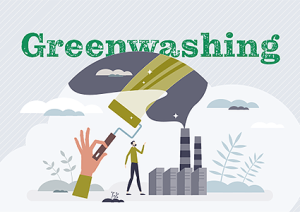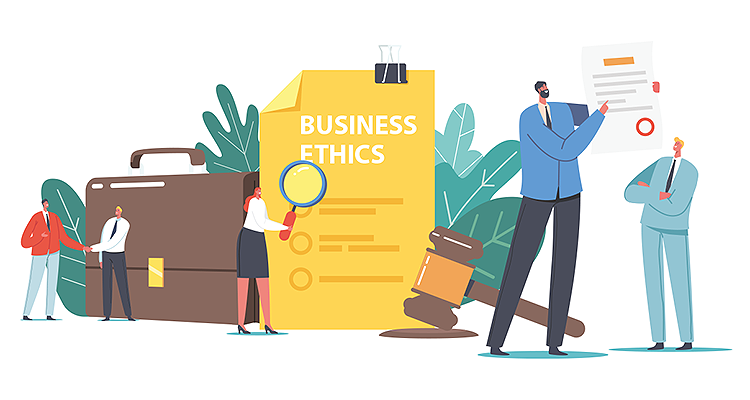Why supply chain ethics should be a top priority for business leaders during a recession By Alex Vavilov
Conflicting reports as to whether the US economy will enter a recession have kept businesses on edge over the last few months. President Biden recently announced his view that there will be no recession for 2023 and even into 2024, yet others are not so convinced.
The recent surge in big tech layoffs has sparked recession concerns industry-wide, with conglomerates Alphabet and Microsoft announcing job cuts for tens of thousands of staff last month. Even Tesla’s Elon Musk is braced for a ‘pretty difficult recession’ while housing sales continue to plummet and the US manufacturing sector contracts for the third consecutive month.
Experts are now warning the US faces a ‘rolling recession’ where not all sectors of the economy decline simultaneously. Instead, they take turns contracting over a longer period.
In such trying times, companies are faced with tough decisions as they try to stay afloat, preserve jobs, and maintain their bottom line. However, it’s also important for business leaders to consider the ethical implications of their decisions, especially when it comes to their supply chains.
Supply chain ethics refers to the moral principles and values that guide the behavior of companies and their suppliers in the production and delivery of goods and services. This includes issues like fair labor practices, environmental sustainability, and product safety.
During a recession, companies may be tempted to cut corners and prioritize short-term financial gains over ethical considerations. However, I explore why adopting an ethical supply chain is even more important during times of economic turmoil and how it creates long-term benefits to boost businesses.
Improving brand image

Today’s consumers are highly motivated to support brands that align with their values, and as a result, consumer demand is continually evolving. A recent study found that 78 percent of consumers give priority to companies that have established ethical sourcing strategies, while 83 percent are willing to pay a premium for products that are ethically sourced.
Adopting an ethical supply chain can give businesses a competitive edge, improve customer loyalty and drive more sales. However, companies will need to be prepared to justify their claims or risk facing backlash.
Just as consumers are becoming more switched on to environmental and social issues, they’re also increasingly more vigilant to ‘greenwashing’ – the practice of misleading customers into believing a brand is ethical.
Greenwashing can have a detrimental impact on brand reputation, from undermining brand image and losing consumer trust, to being sued. Many large organizations like Volkswagen, Coca-Cola and, most recently, Swedish fast fashion giant H&M have all faced class action lawsuits over greenwashing.
Complying with legislation
Supply chain ethics isn’t just a concern for consumers. Transparency in supply chains is becoming increasingly important for businesses at a legislative level.
Last year, the Uyghur Forced Labor Prevention Act (UFLPA) was enacted, prohibiting any goods suspected of containing forced labor from entering the US. Specifically, it prohibits any goods produced, mined, or manufactured wholly or in part in the Xinjiang Uyghur
Autonomous Region of the People’s Republic of China, or produced by certain entities linked to Xinjiang’s forced labor programs.
Chinese fast fashion brand SHEIN was recently questioned by US senators on potential links to forced labor within its supply chain. Though the company denies this, the UFLPA highlights the need for businesses to know their supply chains and to provide evidence that their products are of ethical origin.
Boosting local economies
Putting social responsibility at the heart of supply chain procurement has a wider benefit for local communities.
Both businesses and individuals alike feel the financial impact of a recession, from widespread job losses to increased inflation. But by incorporating ESG (environmental, social, and corporate governance) policies into supply chains, businesses can enhance economic and social conditions for local suppliers, thereby reducing the impact of financial crises and strengthening supply chain resilience.
Mitigating risks

As companies increasingly struggle to control their supply chain costs, it’s never been more important to evaluate the efficiency of supply chains and risk management strategies.
However, according to a recent study, almost a third of procurement teams are cutting corners with their sourcing criteria to ensure supply. This is resulting in more high-risk behaviors being carried out, leading to increased supply chain vulnerability.
Quality control is one of the top struggles in supply chain management. Getting it wrong could harm brand reputation as well as result in losses from product defects. Introducing an effective quality control management program will strengthen supply chains, improve resilience and lower operating costs.
Additionally, businesses should capitalize on new technologies, such as blockchain and cloud computing, and how they can ensure the smooth operation of complex supply chains while driving down costs. Digitizing supply chains helps improve business ethics by opening channels of communication, improving efficiency, and allowing business leaders to harness data information for long-term growth.
For a list of the sources used in this article, please contact the editor.
